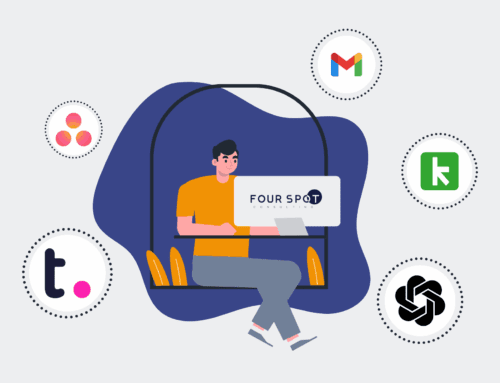Improving Candidate Matching: AI Resume Parsing Beyond Basic Keyword Searches
For decades, the foundation of modern recruiting has relied on the seemingly simple act of searching for keywords. Recruiters and HR professionals have meticulously crafted job descriptions, uploaded them to systems, and then hoped the right combination of words would surface ideal candidates from a flood of applications. The tools designed to help, from early applicant tracking systems to more recent parsing engines, largely operated on this same principle: find the keywords, identify the match. While effective to a degree, this approach has always been inherently flawed, often leading to missed opportunities, biased selections, and a recruitment process that feels more like a lottery than a strategic endeavor.
At 4Spot Consulting, we understand that true efficiency and strategic advantage in talent acquisition demand more than a lexical lens. We’ve seen firsthand how businesses struggle with the limitations of basic keyword matching, especially in today’s dynamic job market where skills evolve rapidly, and roles are increasingly nuanced. This isn’t just about finding a resume that says “project manager”; it’s about understanding the *type* of project manager, their leadership style, their industry experience, and their soft skills—elements often invisible to traditional parsing methods.
The Hidden Costs of Superficial Matching
Relying solely on keyword searches for resume parsing is like trying to understand a book by only reading the chapter titles. You get a superficial overview, but you miss the rich narrative, the crucial details, and the underlying themes. This superficiality comes with significant hidden costs for businesses:
Missed Talent: Highly qualified candidates might use different terminology or describe their experiences in a way that doesn’t perfectly align with your exact keywords, causing them to be overlooked. Conversely, candidates who simply stuff their resumes with buzzwords can game the system.
Increased Time-to-Hire: If your initial screening is inefficient, recruiters spend countless hours manually reviewing resumes that should have been filtered out, or sifting through an excess of marginally relevant profiles. This elongates the hiring cycle, leaving critical roles open for longer and impacting productivity.
Lack of Diversity: Keyword biases can inadvertently perpetuate existing patterns, failing to recognize transferable skills or diverse backgrounds that don’t fit a narrow, predefined mold.
Poor Quality Hires: Without a deeper understanding of a candidate’s true capabilities and potential, the risk of making a suboptimal hire increases. A bad hire isn’t just a cost in salary; it’s a drain on team morale, productivity, and ultimately, your bottom line.
Beyond Keywords: The Power of AI Resume Parsing
The true revolution in candidate matching lies in moving beyond simple keyword recognition to leverage the sophisticated capabilities of Artificial Intelligence. Modern AI-powered resume parsing employs Natural Language Processing (NLP), machine learning, and semantic analysis to understand context, infer meaning, and uncover nuances that are invisible to traditional systems.
Instead of just finding “Python,” advanced AI can understand *how* Python was used, in what context (data science, web development, automation), and at what proficiency level. It can identify patterns across different roles, recognize transferable skills from seemingly disparate industries, and even infer soft skills like leadership, collaboration, or problem-solving from the way experiences are described.
What Advanced AI Brings to the Table:
- Semantic Understanding: AI doesn’t just match words; it understands the meaning and relationships between them. This means it can recognize “team lead” as synonymous with “manager of a small group” even if the exact phrase isn’t present.
- Skill Inference: From project descriptions, AI can deduce underlying skills that aren’t explicitly listed. For instance, managing a complex software implementation implies strong project management, communication, and problem-solving skills.
- Contextual Analysis: AI can analyze the entire document to understand the context of experiences, identifying key achievements and responsibilities within specific roles and industries.
- Bias Reduction: While no AI is perfectly unbiased, advanced systems can be trained to focus on objective indicators of skill and experience, rather than relying on potentially biased keywords or demographic proxies.
- Dynamic Skill Mapping: As the job market evolves, AI models can continuously learn and adapt, identifying emerging skills and mapping them to existing roles, ensuring your talent pipeline remains relevant.
Transforming Talent Acquisition into a Strategic Advantage
Integrating advanced AI resume parsing into your HR and recruiting operations isn’t merely an upgrade; it’s a strategic imperative. It allows businesses to shift from reactive, keyword-driven searching to a proactive, insight-driven approach to talent acquisition. For instance, we helped an HR tech client save over 150 hours per month by automating their resume intake and parsing process using Make.com and AI enrichment, then syncing to Keap CRM. This transformation didn’t just save time; it fundamentally changed how they discovered and engaged with top talent.
This means identifying the best-fit candidates faster, reducing the cost per hire, and significantly improving the quality and longevity of new hires. By understanding candidate profiles at a deeper, more granular level, businesses can build stronger, more resilient teams ready to meet future challenges. It moves HR and recruiting from a cost center to a true strategic partner in organizational growth and scalability.
The era of basic keyword matching is rapidly fading. The future belongs to organizations that embrace AI to uncover the true potential within every candidate, ensuring that their hiring strategy is as sophisticated and forward-thinking as their business goals. This is about making every hiring decision an informed, strategic move, powered by intelligence that goes far beyond surface-level words.
If you would like to read more, we recommend this article: Mastering AI-Powered HR: Strategic Automation & Human Potential







